Learning the work of ambitious mathematics teaching
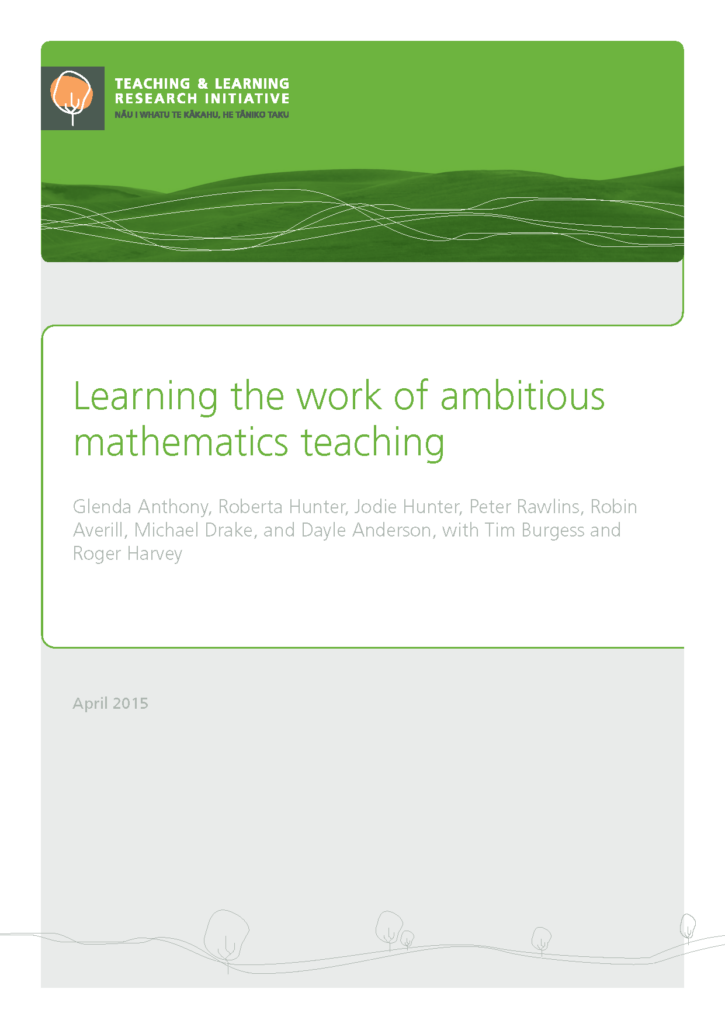
Introduction Seen by policy makers as both the cause of and a solution for education problems, teacher education is frequently criticised for not producing teachers of sufficient quality, while simultaneously being viewed as “an ideal site for increasing teacher quality, providing it is subject to reform” (Ell & Grudnoff, 2012, p. 79). Calls for reform […]
Capturing learning in undergraduate mathematics: a Learning in Undergraduate Mathematics: The Outcome Spectrum (LUMOS) report
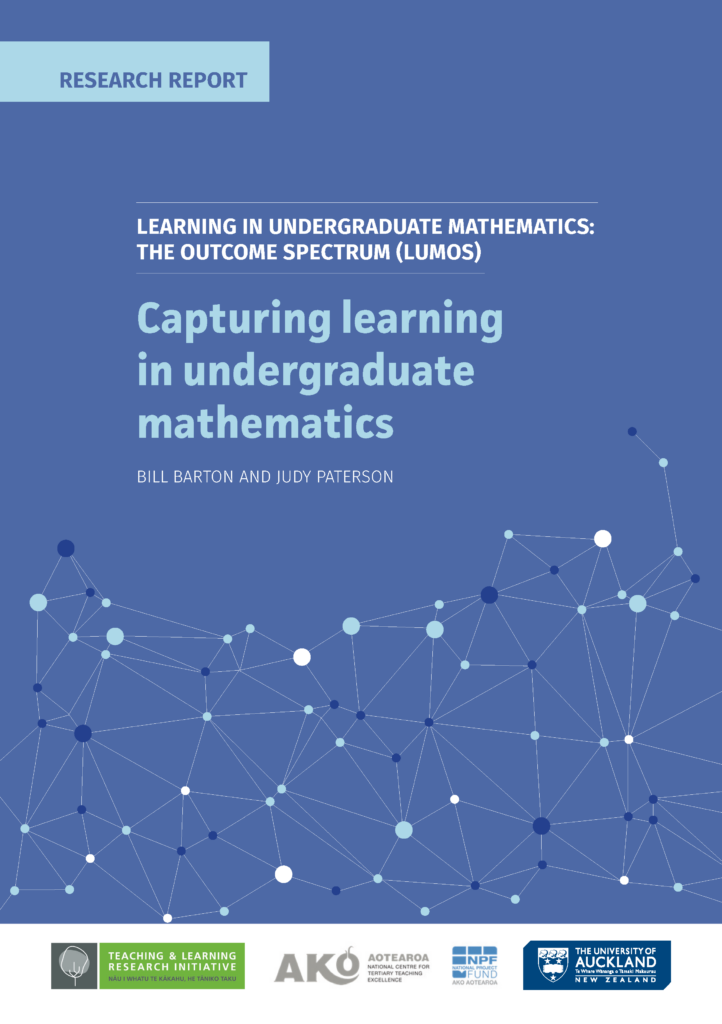
Dedication Judy Paterson sadly passed away during this research project. However, her contribution was a major one, co-leading the design and grant application team, taking responsibility for the Team-Based Learning innovation, conducting interviews, and contributing strongly in several of the learning output observation groups. We dedicate this report to her memory. – Bill Overview of […]
Riariakina ō rongo hirikapo – From kōhanga reo to kura
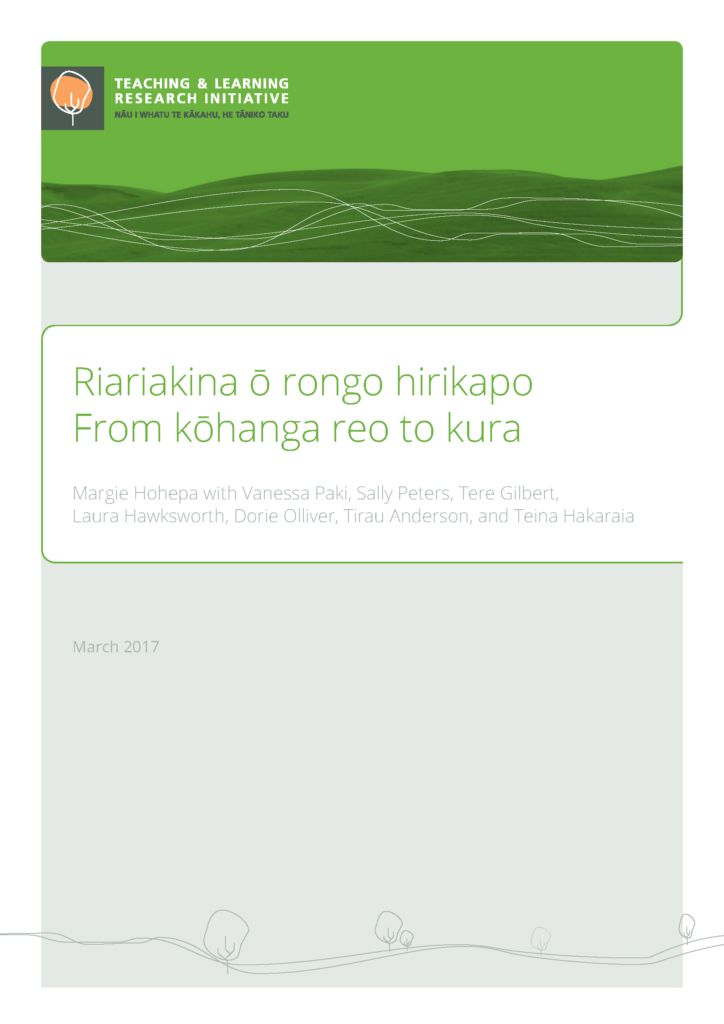
Introduction Ko te kaupapa tonu, ko te whakatupu i te mahara o te hirikapo kia tiu ai ki te muri, arā, kia puta he whakaaro i pokepokengia nō roto tonu i ngā whakahekenga kāwai o ngā tūpuna o te tamaiti, kua maranga te wā e kaumātua haere ana te tamaiti, ngōna kanohi kua huaki, ngōna […]
Visualising chance: Learning probability through modelling
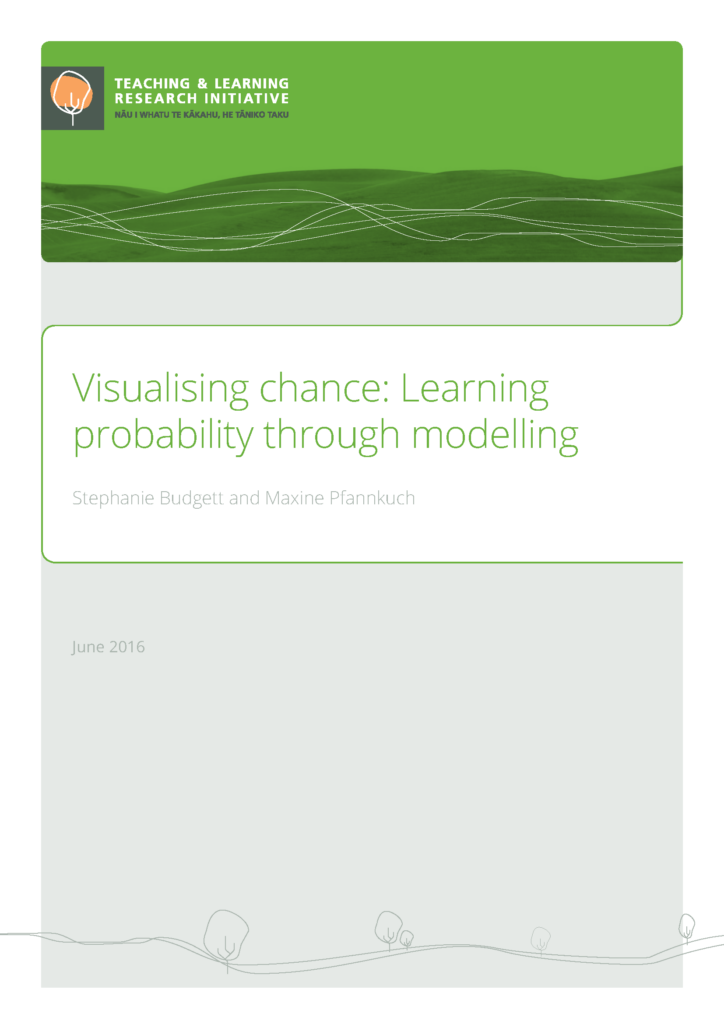
This report summarises the research activities and findings from the TLRI-funded project entitled Visualising Chance: Learning Probability Through Modelling. This exploratory study was a 2-year collaboration among two researchers, two conceptual software developers/interactive graphics experts, three university lecturers/ practitioners, one master’s student, four teacher observers and one quality assurance advisor. The project team designed innovative […]
Beyond play: Learning through science investigation
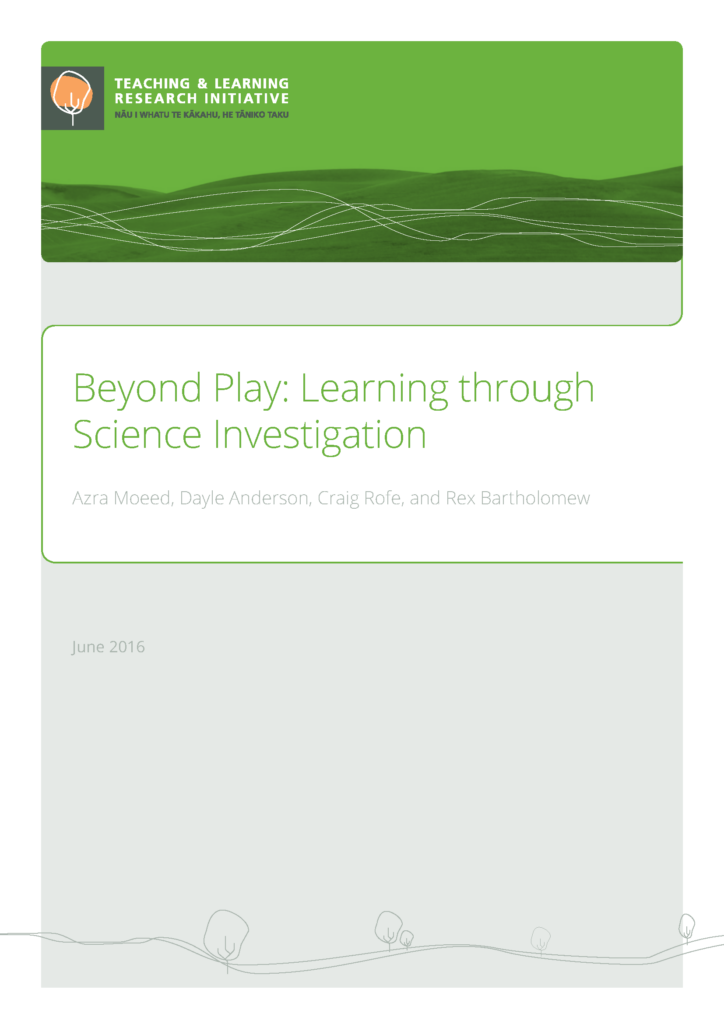
Acknowledgements We would like to thank the Teaching and Learning Research Initiative for providing the funding for this project and Dr Rose Hipkins for her support as our monitor. We are grateful for the guidance from Professor Robin Millar who gave us his thoughts, time, and the confidence to take on this project. Our sincere […]
Designing mobile learning with education outside the classroom to enhance marine ecological literacy
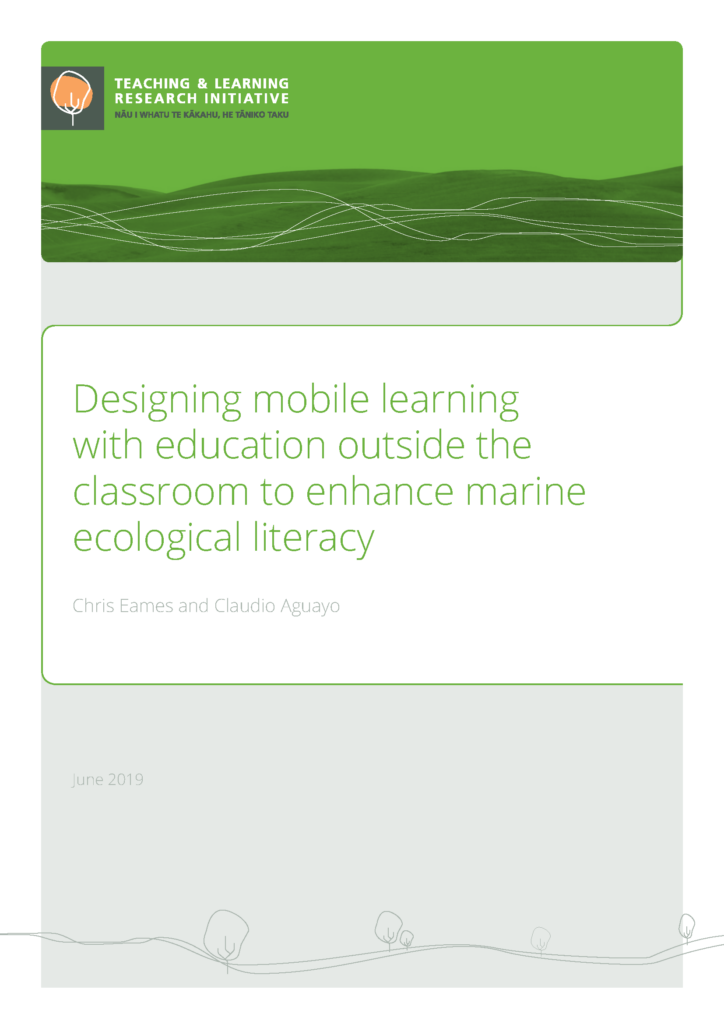
1. Introduction The aim of this study was to explore how purposeful educational design using mobile learning might enable integration of classroom and outside of classroom teaching and learning. The context for the study was marine conservation with a goal to enhance the ecological literacy (ecoliteracy) of primary school students and their parents, and by […]
Moving beyond the threshold: A TLRI final report 2014–16
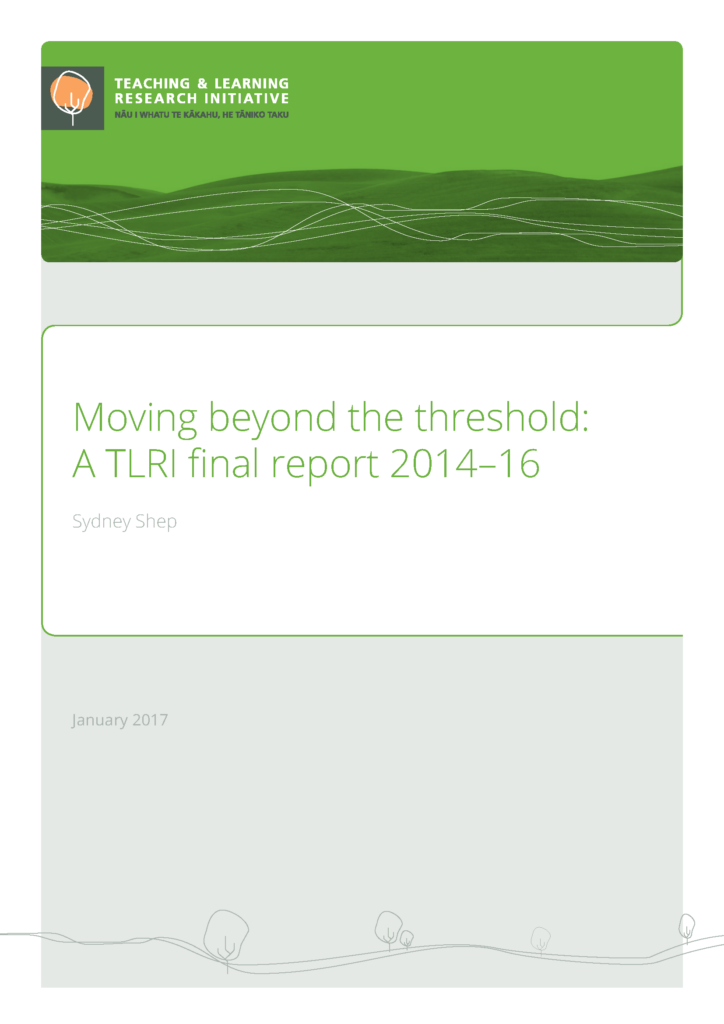
Introduction Moving beyond the threshold set out to interrogate what it means to think historically in the digital age (Tredinnick, 2013). How do university students and teachers use digital media to transform learning experiences? Do digital approaches present novel ways to engage with key historical concepts? Answers to these questions continue to be important and […]
Mathematical Reasoning and Knowledge in Initial Teacher Education (MARKITE)
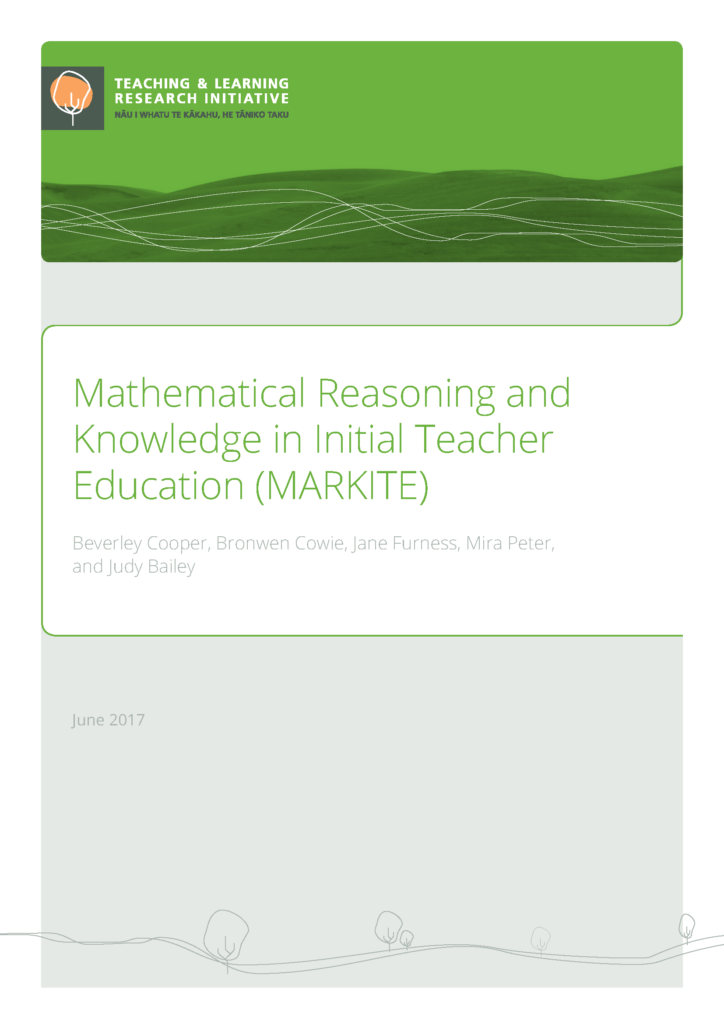
Introduction The New Zealand Government’s goal is to have an education system that equips all learners with the knowledge, skills, and values needed to be successful citizens in the 21st century (New Zealand Government, 2011); government policy recognises that mathematical understanding is fundamental to effective participation in society, and delivers significant social and economic benefits […]
Transforming information literacy space(s) to support student learning
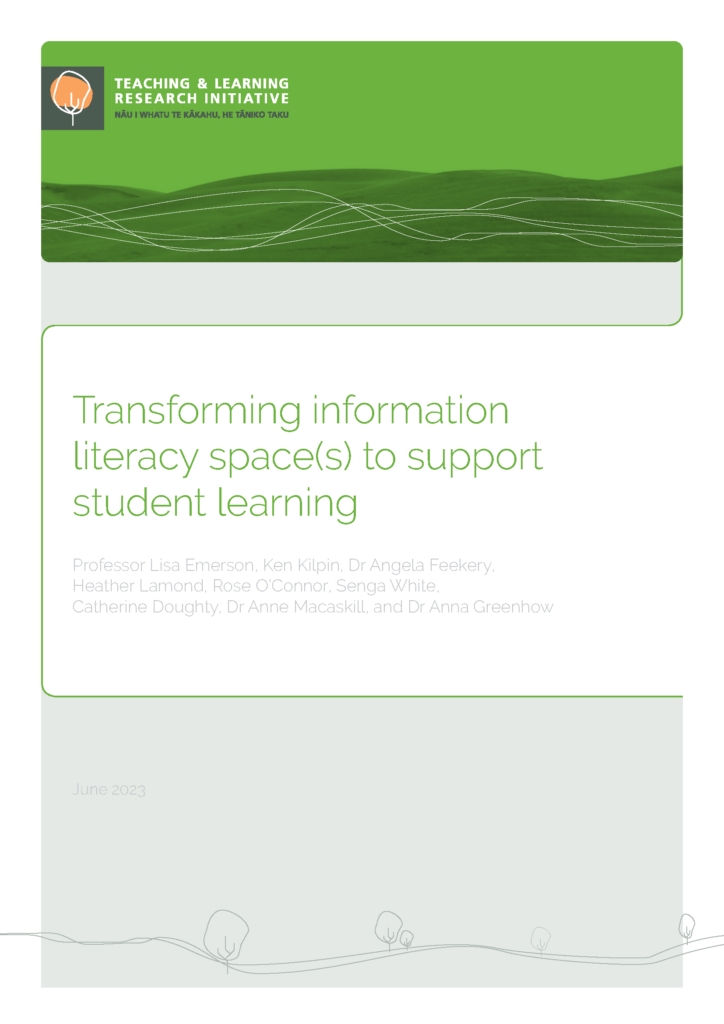
1. Introduction The driver of this research arose from the findings from our earlier TLRI-funded research on academic literacy (see Emerson et al., 2015): that there was a significant disconnect between literacy expectations in the tertiary and secondary sectors, and that information literacy (IL) was a key to that transition. We perceived IL as a […]
Children’s working theories about identity, language, and culture – O faugamanatu a fanau e sa’ili ai o latou fa’asinomaga, gagana ma aganu’u
Introduction Ma’au i lou ofaga, maua’a i lou faasinomaga. Keep your identity alive to thrive. This 2-year collaborative research project focused on young children’s working theories about identity, language, and culture, how early childhood teachers can nurture and encourage this learning, and how this in turn impacts on children’s participation in early childhood education (ECE) […]
Te Whatu Kete Matauranga: Weaving Māori and Pasifika infant and toddler theory and practice in early childhood education
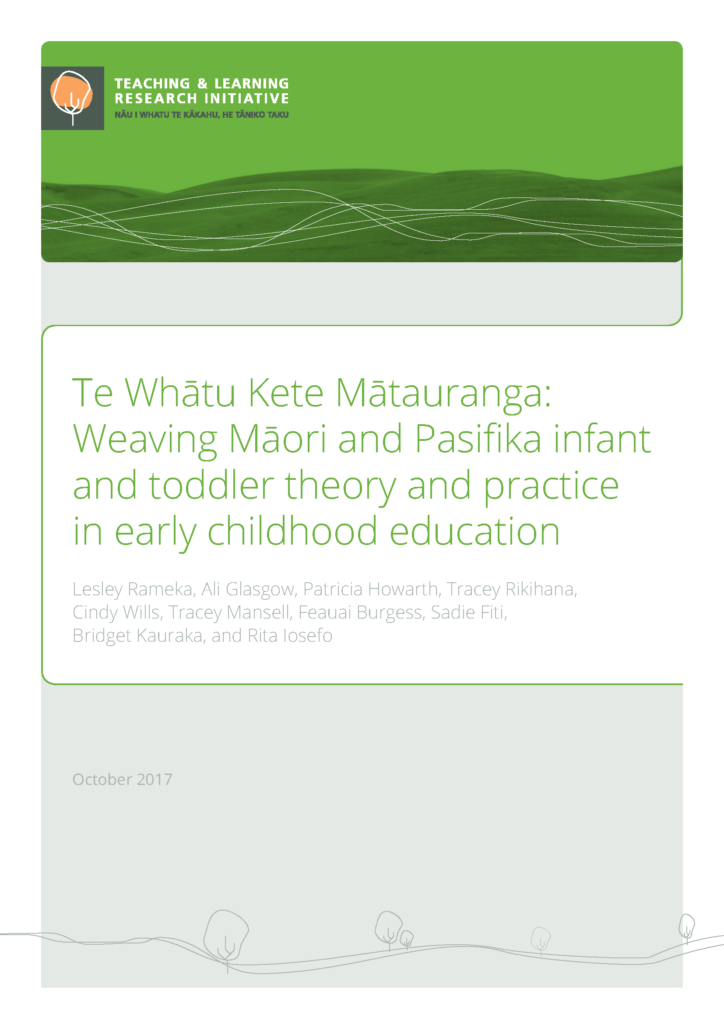
Introduction Early childhood education has an important role in building strong learning foundations to enable young children to develop as competent and confident learners. The need for more work on how early childhood education can better support Māori and Pasifika children to reach their potential is highlighted in findings from the Education Review Office (ERO) […]
Talking about text: Changing patterns of discourse in low-decile secondary classrooms
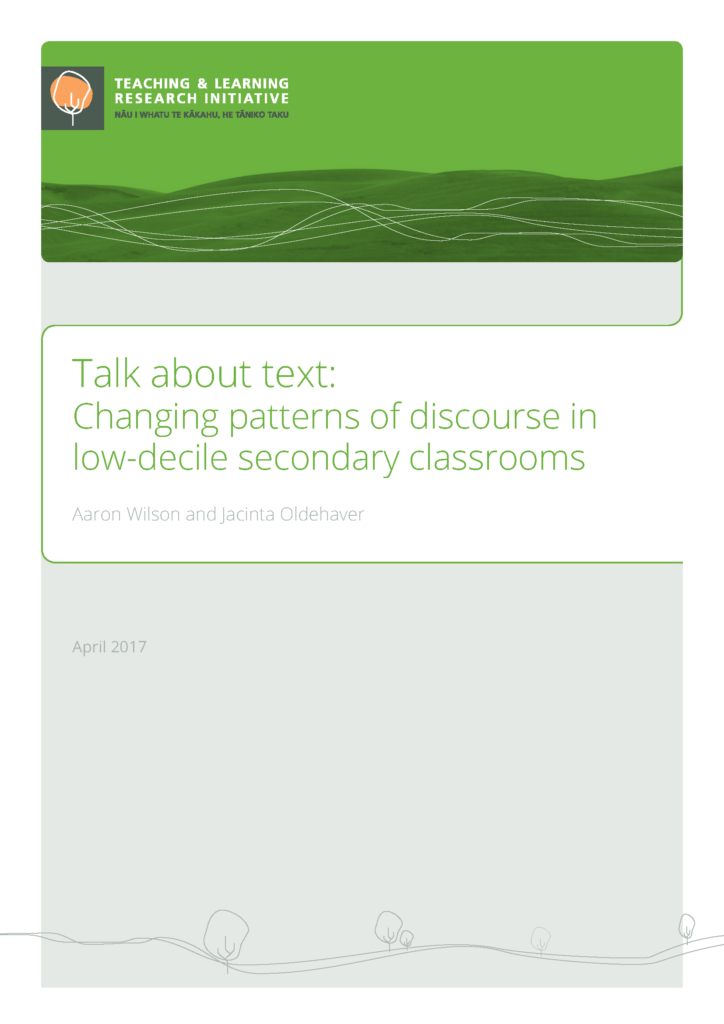
Introduction The aim of this study was to partner with six teachers to investigate and improve patterns of talk about text (TaT) in their subject-specialised classrooms. The teachers worked in two high schools in Auckland, one decile 1 and one decile 2, and taught biology, chemistry, English, health, or physical education to Year 12 or Year […]
Creating active citizens: Interpreting, implementing and assessing ‘personal social action’ in NCEA social studies
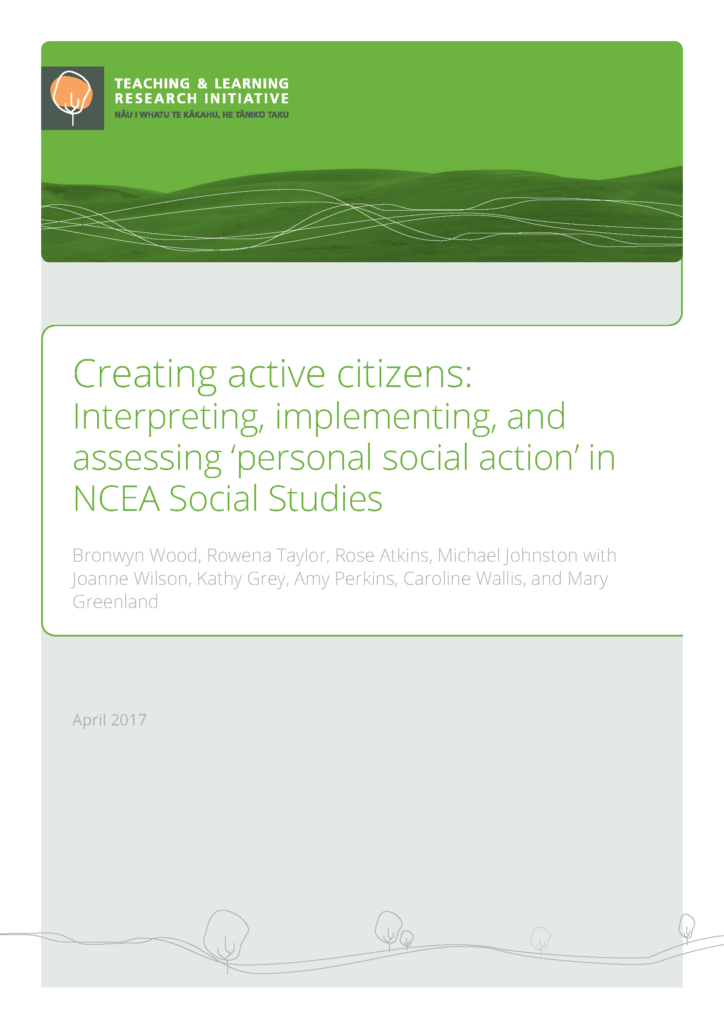
Introduction Since 2013, one internally-assessed Social Studies achievement standard at each of the three levels of the National Certificate of Educational Achievement (NCEA) has required students to actively participate in a social action. Whilst these new personal social action[1] standards hold the potential to support transformative citizenship education, previous research suggests that taking social action […]
Exploring student thinking, problem solving and collaboration in iPad-supported learning environments
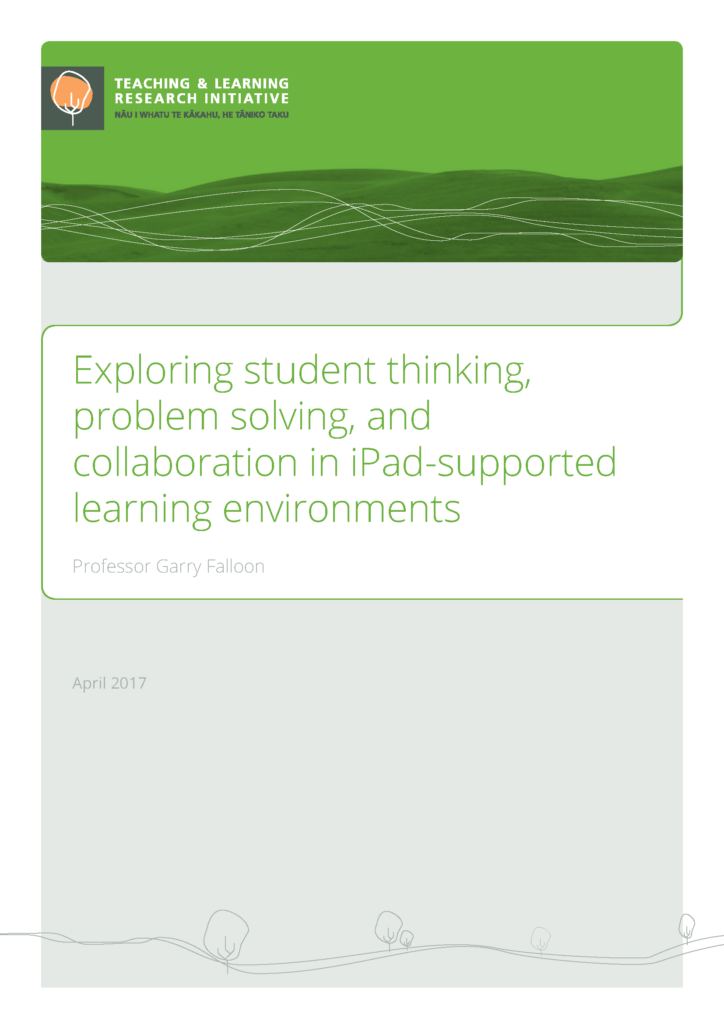
Introduction Despite successive waves of technological innovation being rapidly adopted by schools, teaching methods and curriculum designs have been slow to evolve in response to the affordances offered by an increasing array of digital devices (Cuban, 2017). This phenomenon is not new, with articles dating back to the early 1980s when digital devices were beginning […]
Enhancing teaching and learning of primary mathematics through the use of apps
1. Introduction How might enhancing teachers’ technological, pedagogical, and content knowledge (TPACK) influence the teaching and learning of primary school mathematics though using apps? The focus of this research project was on teaching and learning primary mathematics through the use of apps with mobile digital devices. Specifically, the project aimed to use the lens of […]
Making mathematical thinking visible
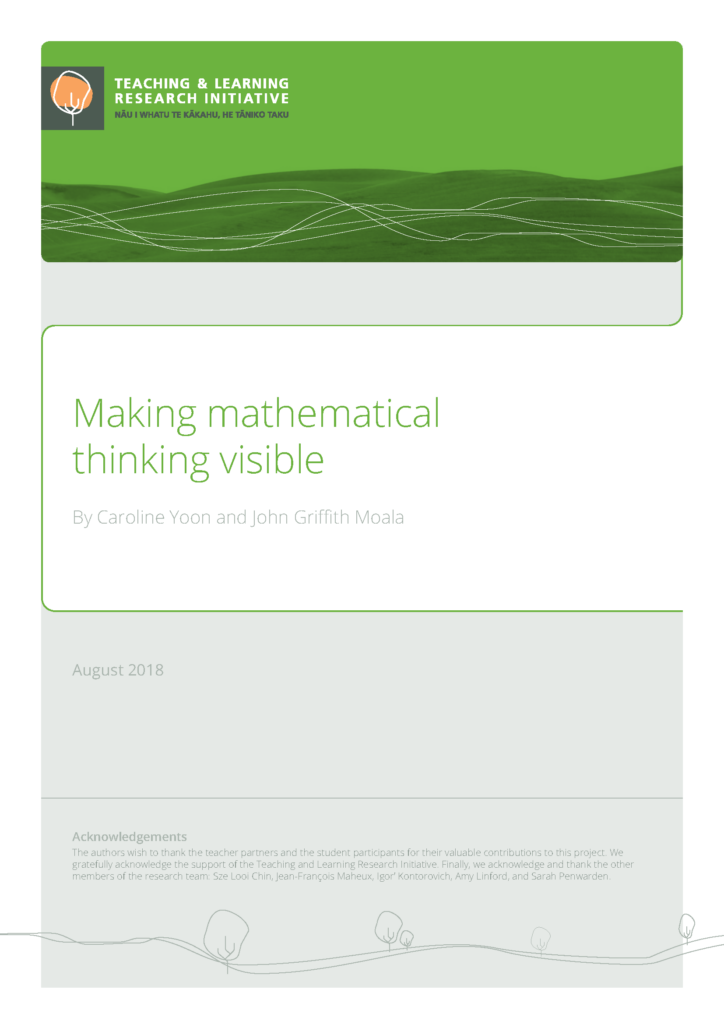
1. Mathematical parts and wholes Of all the subjects in the New Zealand school curriculum, mathematics is perhaps the most strongly associated in students’ minds with expectations of conformity, accuracy, and rule-following. Yet mathematicians describe mathematics as a source of intense aesthetic pleasure, creativity, and play (Lockhart, 2009; Sinclair, 2004). Chevallard (as cited in Eisenberg […]
The Apiscope Buzz: A mixed methods action research project investigating STEM to STEAM using the Apiscope as a tool for differentiated teaching and learning
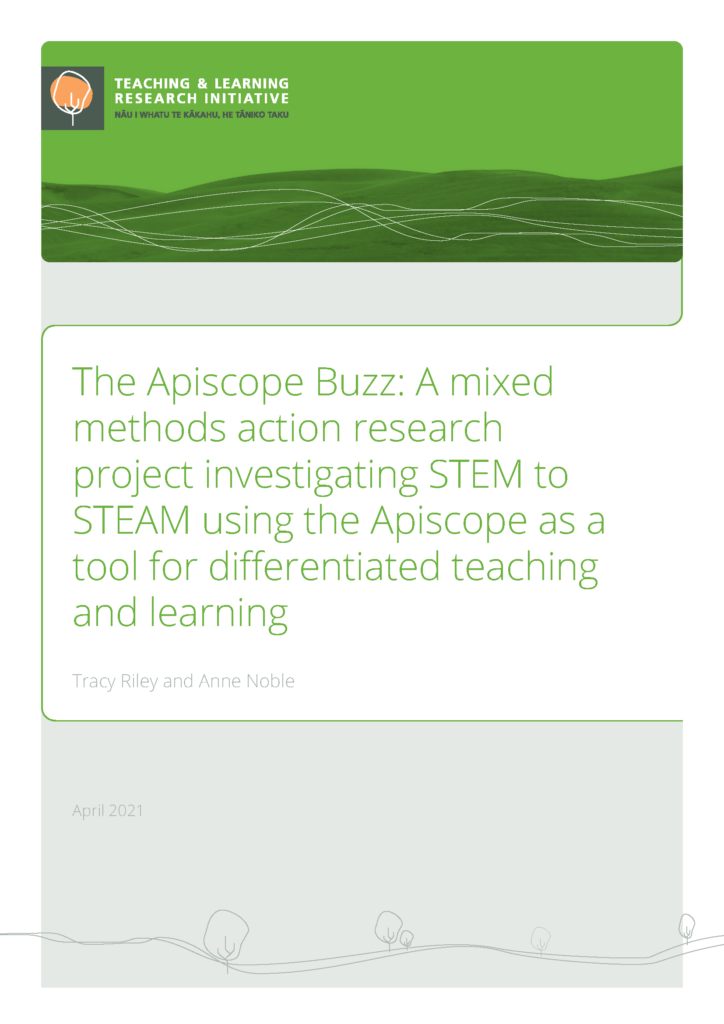
Introduction This Teaching and Learning Research Initiative (TLRI) project was a 2-year exploratory study focusing on differentiating the curriculum in response to individual learner differences. The project was designed to explore learning and teaching of differentiated scientific content through observational processes and the expression of that learning through the creative arts. This exploration was undertaken […]
Investigating the Impact of Non-Routine Problem Solving on Creativity, Engagement and Intuition of STEM Tertiary Students
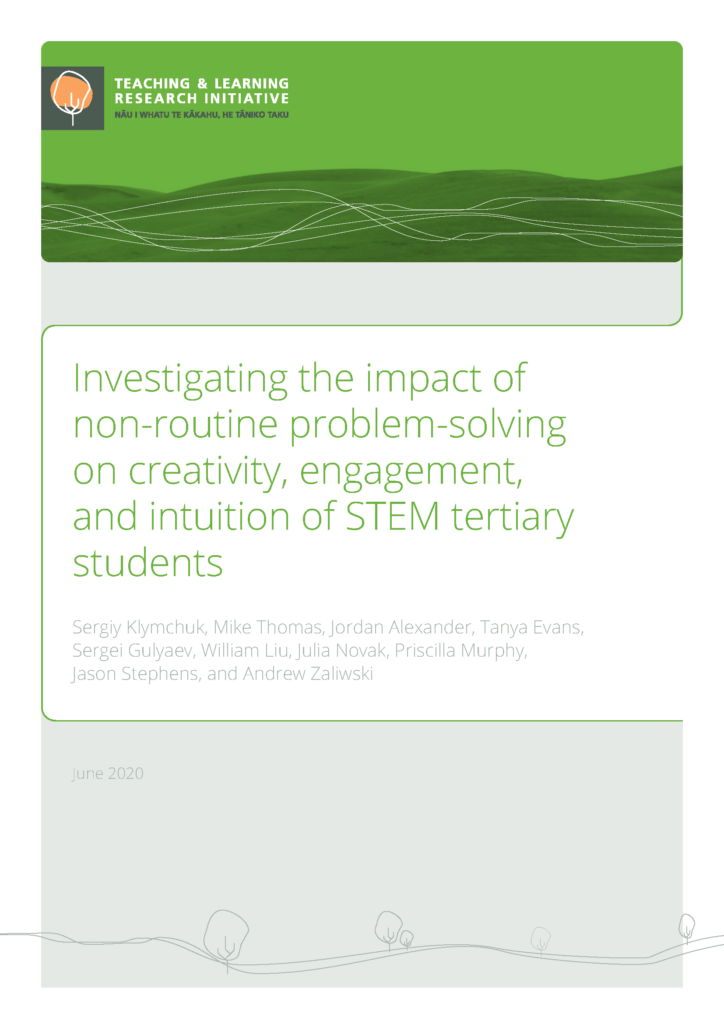
1. Introduction In 2012 the New Zealand Government identified as a priority the need to address the undersupply of students studying STEM subjects for delivering its Business Growth Agenda.[1] Low engagement and retention rates in STEM subjects contribute to the shortage of STEM graduates, producing a negative impact on the New Zealand economy. A significant […]
The Relationship between Participation in Singing Programmes and Student Well-Being in a Christchurch Primary School
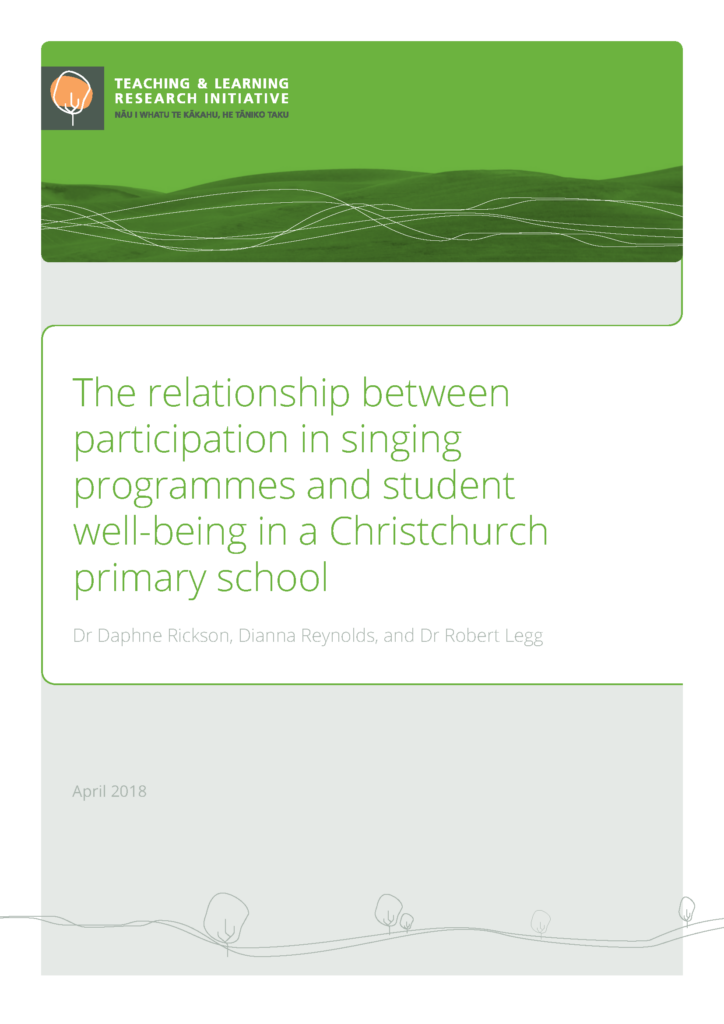
Introduction Background Waitākiri School in Christchurch was formed in 2014 as part of the larger restructuring of Christchurch schools following the 2010–2011 earthquakes. The new school motto at the time, ‘creating a new community school together’, reflects the significant ongoing psychological and environmental challenges that learners, staff, and families have been facing, including ongoing effects […]
Supporting teachers and learners of programming by understanding feedback on syntax, semantics and style
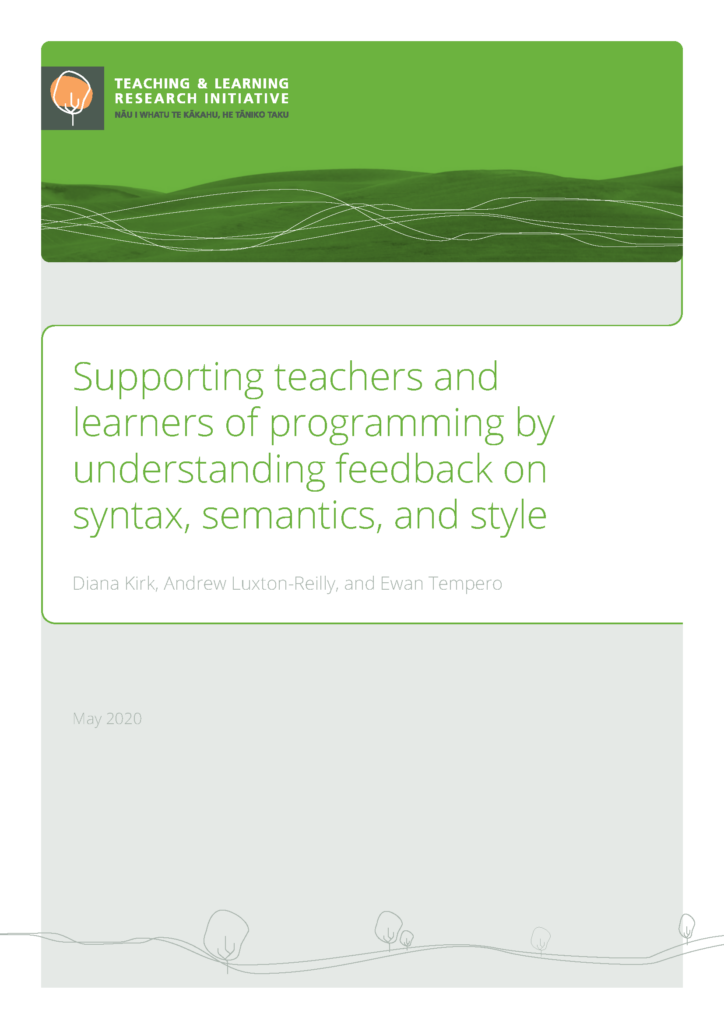
Introduction New Zealand has a shortage of skilled workers in information technology (IT). Skills relating to computer programming (e.g., software engineer, applications programmer, software tester, web developer) all appear on the 2019 Long Term Skill Shortage List published by Immigration New Zealand (Immigration New Zealand, 2019). In 2020, Immigration New Zealand reports a continued lack […]
